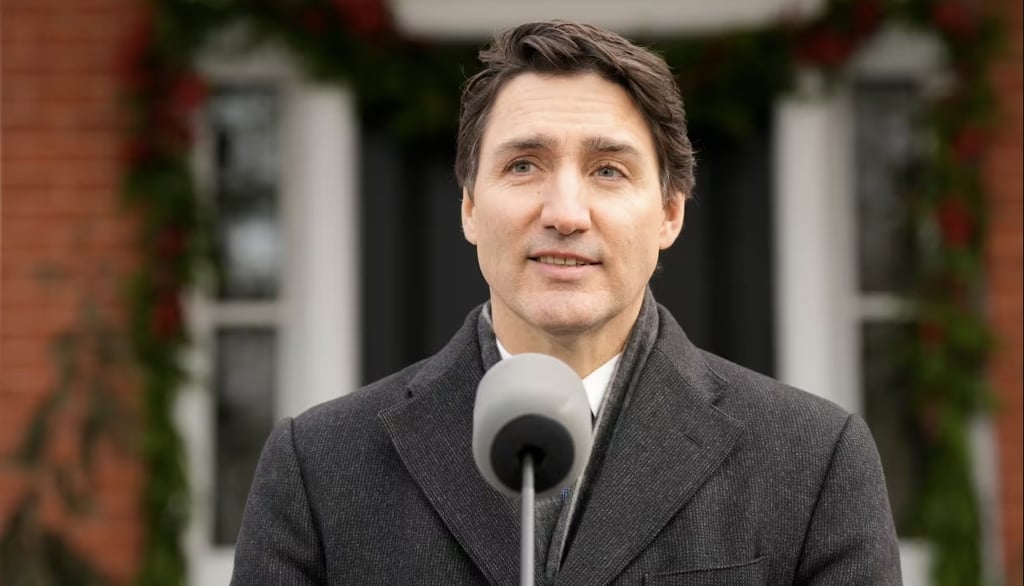Trudeau to Resign as Prime Minister After Liberal Leadership Race
Liam O'Connell
1/6/20252 min read


Prime Minister Justin Trudeau announced Monday that he will resign after the Liberal Party selects a new leader, concluding a nine-year premiership that began in 2015.
Standing outside his official residence, Rideau Cottage, Trudeau revealed that his decision was made over dinner with his children on Sunday night.
"This country deserves a real choice in the next election, and it's become clear to me that if I'm having to fight internal battles, I cannot be the best option in that election," Trudeau told reporters.
Trudeau confirmed that he asked Gov. Gen. Mary Simon to prorogue Parliament until March 24, a request that was granted.
Leadership Race Ahead
Trudeau said he has already tasked the Liberal Party president with organizing a "robust" nationwide process to elect the next leader, who will then face Conservative Leader Pierre Poilievre in the next federal election.
"The Liberal Party of Canada is an important institution in the history of our great country and democracy. A new prime minister and leader of the Liberal party will carry its values and ideals into the next election," Trudeau said.
Trudeau’s departure sets the stage for what is expected to be a competitive leadership race, with several prominent Liberal figures expected to throw their hats into the ring.
Internal Pressure Mounts
Trudeau's decision comes amid months of declining public opinion polling and calls for his resignation from at least two dozen Liberal MPs and several regional caucuses, including Atlantic Canada, Quebec, and Ontario.
The political pressure intensified following the resignation of Chrystia Freeland as finance minister and deputy prime minister last month. Freeland, seen as Trudeau's closest ally, resigned the same day she was scheduled to present the fall economic statement, citing differences with Trudeau over economic policy and his approach to the incoming U.S. administration.
Conservatives Ready for Non-Confidence Vote
The Conservative Party, buoyed by strong polling for over a year, has announced plans to introduce a non-confidence motion in the Liberal government early in the new year.
Trudeau’s resignation and the subsequent leadership race could significantly impact the Liberals’ ability to counter the Conservatives’ momentum in the months ahead.
"I’m excited to see the process unfold in the months ahead," Trudeau said, signaling optimism for the party’s future under new leadership.
What’s Next?
With Parliament prorogued until March, political attention will shift to the Liberal leadership contest, which is expected to shape the direction of the party as it prepares for a likely federal election. Trudeau’s successor will inherit both opportunities and challenges, as the party seeks to regain public confidence and navigate a turbulent political landscape.
News
Stay updated with the latest BC news stories, subscribe to our newsletter today.
SUBSCRIBE
© 2025 Innovatory Labs Inc.. All rights reserved.
LINKS
